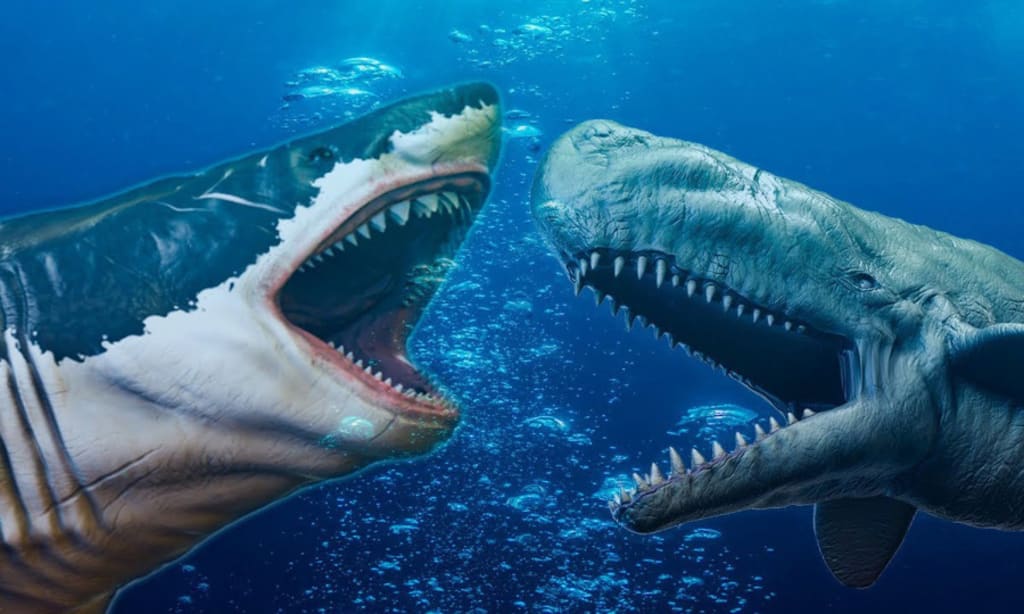
A recent study, as reported by CNN, has unveiled an astonishing revelation about the Megalodon shark, an extinct apex predator that prowled the seas millions of years ago. Through an analysis of the Megalodon's fossilized teeth, scientists have uncovered a remarkable secret: this colossal shark was, in fact, warm-blooded. Its body temperature was found to be approximately 7 degrees Celsius higher than the estimated temperature of the ancient sea it inhabited.
Robert Eagle, a co-author of the study and a professor of marine science and geochemistry at the University of California, Los Angeles, noted in an email, "We have discovered that Otodus megalodon had a considerably higher body temperature compared to other shark species, in line with its ability to generate internal heat, much like modern warm-blooded animals." This finding highlights the pivotal role this unique characteristic played in the enormous size and power of this ancient predator, shedding light on the reasons for its eventual extinction.
The Megalodon was a true giant, measuring at least 15 meters in length, and was known as the megatooth shark. It was one of the largest marine predators since the Mesozoic Era, but it went extinct approximately 3.6 million years ago.
Previously, scientists had speculated that the Megalodon might have been warm-blooded, but this groundbreaking research provides the first concrete evidence to support this hypothesis.
Researchers observed a tight correlation between carbon-13 and oxygen-18 isotopes in the fossilized teeth of the Megalodon. This is a crucial piece of evidence that serves as an indicator of its body temperature. From this discovery, they concluded that the average body temperature of the Megalodon was around 27°C.
The study revealed that, much like modern great white sharks and mako sharks, the Megalodon had the ability to regulate its body temperature in specific parts of its body. In contrast, cold-blooded prey species rely on the surrounding water temperature to regulate their body temperature.
Kenshu Shimada, a senior research author and a paleobiologist at DePaul University in Chicago, suggested that warm blood might have been a key factor contributing to the enormous size and exceptional hunting capabilities of the Megalodon. He explained in an email, "A large body enhances the efficiency of capturing prey over a larger spatial range, but it requires a lot of energy to maintain. Based on fossil evidence, we know that Megalodon had enormous cutting teeth used to prey on marine mammals, such as pinnipeds and cetaceans. The new research supports the idea that the evolution of warm-bloodedness was a primary factor in enabling Megalodon to achieve this giant size to meet its high metabolic demands."
Given the size and energy demands of such a creature, the constant expenditure of energy required for body temperature regulation could have played a role in its decline as the Earth's climate changed. Researchers believe that the extinction of the Megalodon coincided with a period of cooling on Earth.
Shimada further elaborated, stating that "the disappearance of the Megalodon highlights the vulnerability of warm-blooded animals because they demand a continuous food supply to maintain high metabolism. Climate change may have led to changes in the marine ecosystem, primarily through sea level drop, altering the habitats of Megalodon's prey such as marine mammals, potentially leading to its extinction."
Michael Griffiths, the lead author of the study and a paleobiologist at William Paterson University in New Jersey, emphasized that the Megalodon's enormous size made it more susceptible to changes in the populations of its prey than other apex predators.
Exploring the ancient history of the Megalodon provides valuable insights into the challenges that contemporary marine creatures, such as the modern great white shark, face due to shared biological traits with their prehistoric counterparts. This study underscores how climate change and ecological shifts can pose serious threats to apex predators in the oceans today.





Comments
Test is not accepting comments at the moment
Want to show your support? Send them a one-off tip.